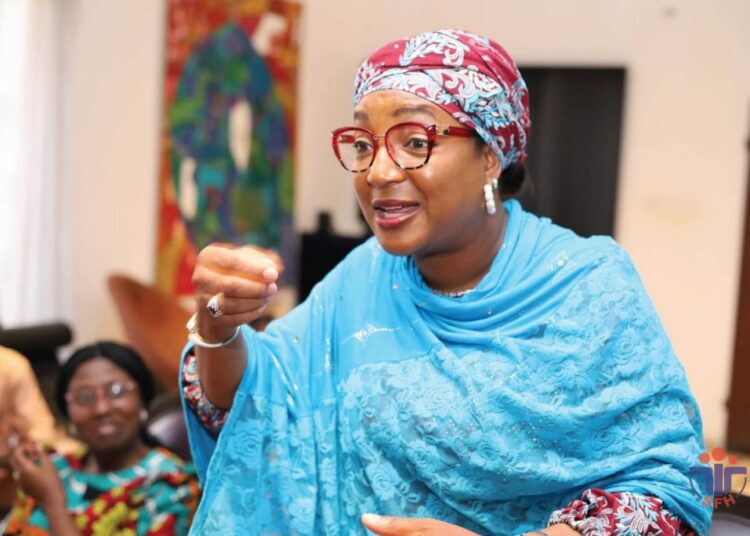The wife of the Kwara State governor, Prof. Olufolake Abdulrazaq yesterday called for improved sensitisation and education on detection of cancer disease.
She said this is necessary to attract higher survival rates of the disease and improved quality of life in the country, emphasising that early detection of the cancer disease remains the only measure to reduce untimely death among the people.
Abdulrazaq, who spoke at the World Cancer Day’s event in Ilorin, Kwara State capital lamented that: “The burden of cancer continues to grow globally exerting tremendous physical, emotional and financial strain on individuals, families, communities and health systems.
“In 2020, Nigeria recorded approximately 125, 000 new cases of cancer with breast and prostate cancers the most prevalent cancers in women and men respectively.
“Dreadful as this may sound, cancer, when detected as early as possible there stand chances of successful treatment.
“Early diagnosis improves cancer treatment outcomes by providing care at the earliest possible stage, this approach, however, is what is being adopted in Kwara state amplifying sensitization of our people on the need to present themselves for periodic screening to ascertain their health status”, she said.
The first lady commended Governor AbdulRahman AbdulRazaq for his administration’s investments in the health sector, saying that his partnerships have elicited improved support for the state.
“A testament to this is the ongoing construction of the state of the art Abdulsamad Rabiu Oncology Centre to further strengthen cancer management in the state.
“The state has also undertaken several rounds of free cancer screening across the 16 local government areas with a view to detect incidents of cancer in the rural areas and provide support as required by victims”.
She noted that, “The theme of the 2025 World Cancer Day ‘United by Unique’ emphasises a people-centered approach to cancer care, placing individuals and their stories at the heart of the conversation.
“It acknowledges that while cancer affects millions globally, each person’s experience is unique, and personalized care is essential,” she added.











